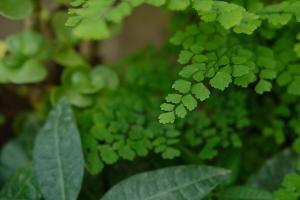When to Plant Fruit Trees in Rhode Island
Fruit trees are an excellent addition to any garden or orchard, providing fresh and healthy produce right at your doorstep. However, planting fruit trees requires careful planning and attention to the weather and soil conditions of your area. If you are considering planting fruit trees in Rhode Island, timing is everything. The following guide will help you determine the best time to plant fruit trees in Rhode Island.
Choosing the Right Time of Year
In general, the best time to plant fruit trees in Rhode Island is in late winter or early spring, before the trees break dormancy. This usually falls between February and April, depending on the weather conditions in your area. Planting fruit trees during this time of year allows them to establish their root systems before they begin to produce leaves and fruits. If you plant fruit trees too late in the season, they may not have sufficient time to establish themselves before the first frost or winter weather hits.
Understanding Soil and Climate Conditions
Another important factor to consider when planting fruit trees in Rhode Island is soil and climate conditions. Fruit trees thrive in well-drained soil that is rich in organic matter. Rhode Island's soil tends to be on the acidic side, so you may need to add lime or other soil amendments to adjust the pH level. The climate in Rhode Island also plays a significant role in the success of your fruit trees. The state is in USDA hardiness zone 5 to 7, which means that the average minimum temperature ranges from -10°F to 10°F. You should choose fruit tree varieties that are well-suited for these conditions.
Choosing the Right Fruit Tree Varieties
When selecting fruit trees to plant in Rhode Island, it is important to choose varieties that are hardy and well-suited for the local climate. Some of the best fruit tree varieties for Rhode Island include apple trees, peach trees, cherry trees, pear trees, and plum trees. These fruit trees are hardy, disease-resistant, and produce high-quality fruits that are well-suited for the local climate. You should also consider the size and spacing requirements of each fruit tree variety, as well as the amount of care and attention they need.
Preparing the Soil and Site
Before you plant your fruit trees, you should prepare the soil and site to ensure their success. The soil should be well-drained, rich in organic matter, and free of weeds and other debris. You may need to add compost, manure, or other organic fertilizers to the soil to improve its fertility. The planting site should be in a location that receives full sun for most of the day, and is protected from strong winds and other extreme weather conditions. You should also consider the drainage and irrigation requirements of each fruit tree variety, and make sure that the planting site is well-suited for their specific needs.
Caring for Your Fruit Trees
Once you have planted your fruit trees in Rhode Island, it is essential to care for them properly to ensure their health and productivity. This includes watering them regularly, mulching around the base of the trees to conserve moisture, pruning them to promote healthy growth and maximize fruit production, and protecting them from pests and diseases. You should also fertilize your fruit trees annually with a balanced fertilizer to provide them with the nutrients they need to thrive.
In conclusion, planting fruit trees in Rhode Island can be a rewarding and fruitful experience if done correctly. By choosing the right time of year, understanding the soil and climate conditions, selecting the right fruit tree varieties, preparing the planting site properly, and caring for your fruit trees after they are planted, you can enjoy a bountiful harvest of fresh and healthy fruits for years to come.

 how many times do yo...
how many times do yo... how many planted tre...
how many planted tre... how many pine trees ...
how many pine trees ... how many pecan trees...
how many pecan trees... how many plants comp...
how many plants comp... how many plants can ...
how many plants can ... how many plants and ...
how many plants and ... how many pepper plan...
how many pepper plan...































